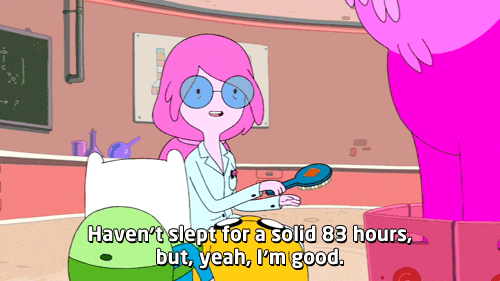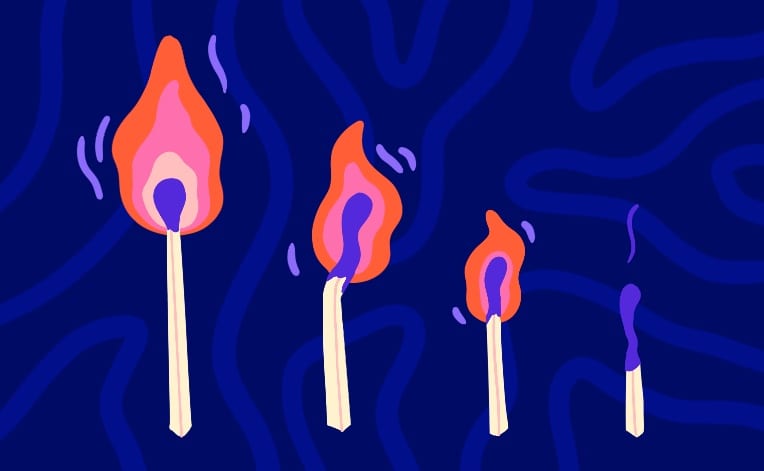We’re all about equipping you with the know-how to understand your symptoms, and we especially emphasize the specific, tangible ways to manage them. Our goal is to empower YOU to take charge of your menopause journey, starting today.
A quick note about product recommendations…Elektra Health is not paid to feature any products. We just like them and think you might too, though we can’t guarantee any results.
Lifestyle
Sleep wellness is complex, with many lifestyle factors playing an important role. There isn’t a one-size-fits-all solution since it’s important to understand your unique sleep difficulties, needs, and goals. What works for you?
Nutrition & Diet
Give your diet a Mediterranean makeover
Research shows that those who adhere to a Mediterranean diet experience better quality sleep either directly (due to the diet itself) or indirectly (due to diet-related weight loss). It all comes down to the anti-inflammatory, veg-heavy, low-carb, and low-sugar properties of the Mediterranean diet. Here’s a quick primer on what is and isn’t included:
Included: vegetables, fruits, nuts & seeds, legumes, whole grains, potatoes, herbs & spices, fish & seafood, extra virgin olive oil
Partially included (but in moderation): poultry, eggs, dairy (cheese & yogurt)
Rarely included: red meat
Not included: added sugars, sugar-sweetened beverages, processed meats, refined grains, refined oils & other processed foods
Avoid large meals too close to bedtime (especially sugary, high-carb, fried, and/or spicy ones)
When consumed too close to bedtime, large meals can engage the digestive system to work on processing the meal and lead to an insulin spike that then drops (and wakes you up) about five hours later. Spicy, acidic foods can be particularly bothersome since they may trigger hot flashes or night sweats.
If you’re hungry within three hours of going to bed, reduce the quantity to a small bedtime snack. Bonus points if it has soy in it, since that has been known to minimize hot flashes and night sweats. Try a handful of nuts, dried edamame, or a glass of soy milk.
Brew a cup of chamomile tea
Chamomile is one of the oldest medicinal herbs in the world, with impressive anti-inflammatory benefits to boot. It’s rich in what’s called flavonoids, which are natural plant chemicals (aka phytonutrients) that lend fruits and veggies their vibrant hues and, according to clinical trials, induce calming effects that support sleep and help treat insomnia.
The tried-and-true … but-truly-difficult-to-do
Limit caffeine & alcohol intake too close to bedtime
Caffeine
This is nothing revolutionary — nor is it easy — but it’s worth mentioning. Caffeine is a stimulant with a half-life of 5-6 hours (or longer if you’re on certain types of medication). A “half-life” is the amount of time it takes for the quantity of caffeine in your body to be divided into two, which means after 5-6 hours, you’ll still have half the original amount of caffeine in your body. Only after 10-12 hours will it be completely eliminated.
Although people’s sensitivities to caffeine vary, it can cause difficulties in sleep onset if it’s still in your body come bedtime. As a general rule of thumb, try to avoid it after 2pm; however, if you typically go to bed on the earlier side (around 10pm), you wouldn’t want to consume caffeine after noon – 1pm(ish). And beware of hidden sources of caffeine in medications such as pain relievers, weight loss pills, diuretics, and cold medicines. There’s even small amounts of caffeine in decaf, so be sure to opt for a brand like Swiss Water, which removes 99.9% of caffeine (vs the standard 97%) in a chemical-free process.
Alcohol
When it comes to alcohol, you probably know what we’re going to say: research proves that alcohol can cause poor sleep quality. Yes, a glass of wine or two can be part of a relaxing evening – and we reasonably do recommend “everything in moderation.” But if consumed too close to bedtime, even one alcoholic drink can disrupt sleep patterns, delay onset of REM sleep (the dream stage), and bathroom breaks. This occurs because as alcohol is metabolized, your body experiences a rebound effect from its sedative effects during the second half of the night. This puts you into a lighter sleep stage, which means it’s easier to wake up.
These days, there are plenty of non-alcoholic options like Kin, an adaptogenic drink that went viral a couple years ago. You can find tons of other products on Boisson, a non-alcoholic online vendor.
If skipping alcohol entirely doesn’t feel feasible, we recommend swapping out red wine for white (red is notorious for disrupting sleep) and replacing your evening drink with a cup of herbal tea 1-2x per week to give your system a break.
Check out this guide for more information on nutrition during menopause.
Behavioral & Integrative Practices
You can eat and avoid alllllll the right foods and drinks, but without considering sleep hygiene (terrible name, we know), you’ll only get so far. By this we mean the lifestyle and behavioral practices that take place during the in-between period when you’re not sleeping. It’s a long span of time, which means a whole lot could happen that impacts your sleep. But on the flip side, there’s also a whole lot you can do about it. Below is a list of our founding MD, Dr. Anna Barbieri’s, favorite daily habits to begin incorporating. We recommend starting with one or two.
Create a wind-down routine
We have our morning routines down: it may involve exercise, coffee, breakfast, shower, or packing a lunch for the day. Whatever it is, we do it and it sets our day up for success. We need to give our wind-down the same attention and treat it the same way. Create a bedtime routine that involves practices that help you relax. Doing so will lower sympathetic activation (your body’s fight or flight system…which is not helpful for sleep!). Here’s a list of options to get started:
- A soothing bath or shower
- Cup of chamomile tea
- Stretching or restorative yoga
- Meditation, journaling, or a nightly gratitude practice
- Reading
- Brushing out your hair
- Puzzle, knitting, or some other calming activity that relaxes you
Schedule wisely
Once you build it, you need do fit your wind-down routine into your schedule. Carve out time.
Stick to a consistent bedtime
If the schedule of when we are asleep and awake varies considerably, it can throw off the physiological part of our bodies, which thrives off a 24-hour circadian rhythm. If you can, try and make this work on the weekends, too.
Keep a cool sleep environment
Right around bedtime, your body temperature drops 1-2 degrees, which signals to your internal clock that it’s time to hit the hay. In doctor-speak, this is what’s called “thermoregulation.” We recommend keeping your bedroom at a cool 60 – 67°F and, if that’s not enough, trying cooling sheets made with bamboo or a cooling mattress pad or blanket for your bed.
Beware of blue light
We’re no strangers to the bedtime social media scroll, but we do know it can make falling asleep more difficult. In an ideal world, we’d all avoid screens one hour before bedtime to prevent the blue light from triggering the light receptors in our eyes which, in turn, signal the time-keeper in our brain that we’re awake. In a more realistic world, we’d try our best (but most likely end up looking at a screen on its night setting or with blue light blocking glasses).
Give sleepytime scents a whirl
Set the stage for a good night’s sleep with lavender essential oil in a pillow spray, diffuser, or drops behind the ears — and not just because it smells good. It’s scientifically proven to support relaxation, too.
Relax the mind
Wind down after a long day with meditation, breathing exercises, and sleep music/sounds — we’re big fans of Sacred Acoustics. These techniques can also help if you wake up in the middle of the night, but the key here is to practice during the day first when you’re not tossing and turning, or staring at the ceiling feeling stressed about not sleeping. This way, when you need the skill, it’ll be there.
Cognitive Behavioral Therapy (CBT) for insomnia
CBTI involves working with a sleep coach or therapist to recognize and change beliefs — including negative thoughts and worries — that impact your ability to sleep. That’s the “cognitive” part. And then there’s the “behavioral” part, which helps you develop better habits while avoiding those that inhibit quality sleep. It’s ideal for those looking to address the underlying causes of sleep struggles while working towards long-term management, and studies have proven it to be as or more effective than medication with 50 – 75% of patients attaining clinically significant sleep improvements. For information on the digital CBTI options available, refer to Sleep Foundation. You can also look into sleep coaching.
Exercise
Exercise, for the most part, is good for your sleep. In fact, studies show that people who engage in at least 30 minutes of moderate aerobic exercise may see a difference in sleep quality as soon as that very night.
However, things get a bit more complicated when you factor in type of exercise and at what time of day you engage in the activity. Here’s what you need to know.
- Avoid aerobic and/or high intensity exercise within 1-2 hours of bedtime. Instead, save those for the morning since they can delay melatonin release and negatively impact sleep. Our go-to is Fitnessblender.com.
- Engage in low intensity movement in the evening. Things like tai chi and yoga are great choices (shout-out to Melissa Wood Health!)
Supplements & Over-the-Counter Solutions
Supplements and over-the-counter prescription medications can be effective in supporting your sleep health…if you choose wisely. We recommend consulting with your healthcare provider first to ensure you’re using something with optimal efficacy and safety (i.e. backed by clinical research) or consulting with Elektra’s providers for medical advice. Here’s a quick primer from our team on how to go about selecting high-quality supplements.
Antihistamines
Antihistamines, such as those found in over-the-counter medications like diphenhydramine (Benadryl) or doxylamin (Unisom), commonly cause drowsiness as a side effect. While they can be taken once in a while, we do not recommend them routinely due to potential grogginess (which you don’t want extending into the next morning).
Ashwagandha
Ashwagandha is an adaptogen, which encomapsses a group of herbs that have been used in Ayurveda (traditional Indian medicine) for thousands of years. It’s derived from the roots and berries of a small evergreen shrub and helps manage levels of the key stress hormone, cortisol, which interferes with the production of melatonin.
Vitamin B6
B6, which is one of eight B vitamins, has been shown to boost serotonin levels and, as a result, help minimize hot flashes and night sweats, which themselves can lead to disrupted sleep.
Cannabidiol (CBD)
There is a growing and promising body of research specifically looking at CBD use and sleep, and there are some companies that are incorporating CBD into their sleep supplement formulations (Proper is one example, and it’s a brand with solid manufacturing practices).
It’s important to note that CBD research so far has focused on seizure disorders and anxiety. While additional benefits seem promising, we simply don’t know the specific risks and benefits, or even what is considered to be appropriate dosing. Lots of companies use it in their supplements and the amounts usually used are considered to have a low chance of side effects, but some CBD products may contain small amounts of THC (the ingredient that gives the “high”).
If you want to try CBD, doing your research is of the utmost importance. For more information, check out this article from Harvard Health.
L-theanine
Commonly found in green and black tea leaves, L-theanine is an amino acid that has been studied for its anxiety and stress-reducing properties.
Magnesium
This mineral, which is found on earth and in the human body, plays a role in over 300 biochemical reactions…sleep included. It’s found naturally in foods like leafy greens, salmon, nuts, seeds, and legumes, but many Americans don’t get enough through dietary sources.
Note: The most common side effect is upset stomach, which can be prevented by taking magnesium glycinate or magnesium L-threonate.
Melatonin
This hormone helps regulate our sleep-wake cycles, or circadian rhythms, by shortening the amount of time it takes to fall asleep, improving overall sleep duration, and increasing the time spent in REM sleep. Small amounts of melatonin are found in fruits, nuts, olive oil, and wine.
Valerian root, hops & lemon balm
Valerian root is an ancient herb whose roots have been studied for centuries to promote sleep; hops (as in beer hops) are a type of flowering plant; and lemon balm is a perennial herb from the mint family. All three have been shown in studies to aid relaxation and sleep, which is why they’re often combined in sleep aid supplements and teas.
Prescription
Hormonal
Improved sleep may be both a direct and indirect benefit of hormone replacement therapy (HRT) due to its effect on estrogen and progesterone (we have receptors for both in our brain) as well as night sweats. Typically, however, HRT is not the first line of treatment for insomnia alone, and the decision along with its benefits and risks should be discussed with your doctor. If insomnia is your primary issue, we recommend behavioral, nutritional, and lifestyle solutions.
Learn more in our full guide to hormone replacement therapy.
Non-Hormonal
Non-hormonal sleep medicines can be effective for acute situations of poor sleep caused by high stress or grief; however, they’re designed for occasional, one-off use only.
Keep in mind that certain medications have the potential to interact with other medications or alcohol, so it’s important to discuss with your provider and read the fine print. Also, you need to reserve at least eight hours of sleep when taking a sleep medication.
Benzodiazepines / Anxiolytics
This family of drugs is typically used for treating anxiety. Examples include alprazolam (Xanax), diazepam (Valium), and clonazepam (Klonopin), which work by enhancing the activity of GABA, a neurotransmitter that calms the activity in our brains. These medications can be habit-forming, so regular use is not recommended.
Antidepressants
Since those suffering from depression may also experience insomnia symptoms, antidepressant medications such as Trazodone may be prescribed for temporary sleep support. They work by influencing the serotonin receptors in our brain, thus reducing the time it takes to fall asleep.
Sedatives / Hypnotics
Zolpidem (Ambien) and eszopiclone (Lunesta) are two types of non-benzodiazepines that help people fall asleep faster but have little to no effect on the quality of deep sleep.
We’re always keeping an eye out on emerging research and the latest clinical studies. Subscribe to our weekly Elektra Digest for the latest, science-based info direct to your inbox. Something work well for you that’s not listed here? We want to hear it! Shoot us a note at [email protected]. (We’re human, promise.)
Pro tip #2
Chronic poor sleep raises cortisol levels (a stress hormone), which causes us to wake up more often. Our favorite solution to break the cycle? Sex! Whether it’s with a partner or yourself, orgasms lower cortisol and release prolactin, which encourages relaxation and sleep.
Pro tip #3
At your wits end and ready to speak with your doctor? Keep a sleep journal for at least two weeks prior to your appointment in order to identify recurring patterns (we put together this handy tracker to help you out). Be sure to note your eating and drinking times, bed/wake times, as well as your general mood and state of mind.
Don’t have a provider trained in menopause care? Book a visit with one of our women's health experts or email us at [email protected].
Disclaimer: This information is for general educational purposes, and should not be used as a substitute for medical advice, diagnosis, or treatment of any health condition or problem.
As with anything you put into your body, taking dietary supplements can also involve health risks. You should consult a medical professional before taking supplements and inform your doctor about any supplements, as well as any medications you already take, since there may be interactions.
Helpful? Share the wealth!
Share with a friend who deserves evidence-based expertise &
solutions.






